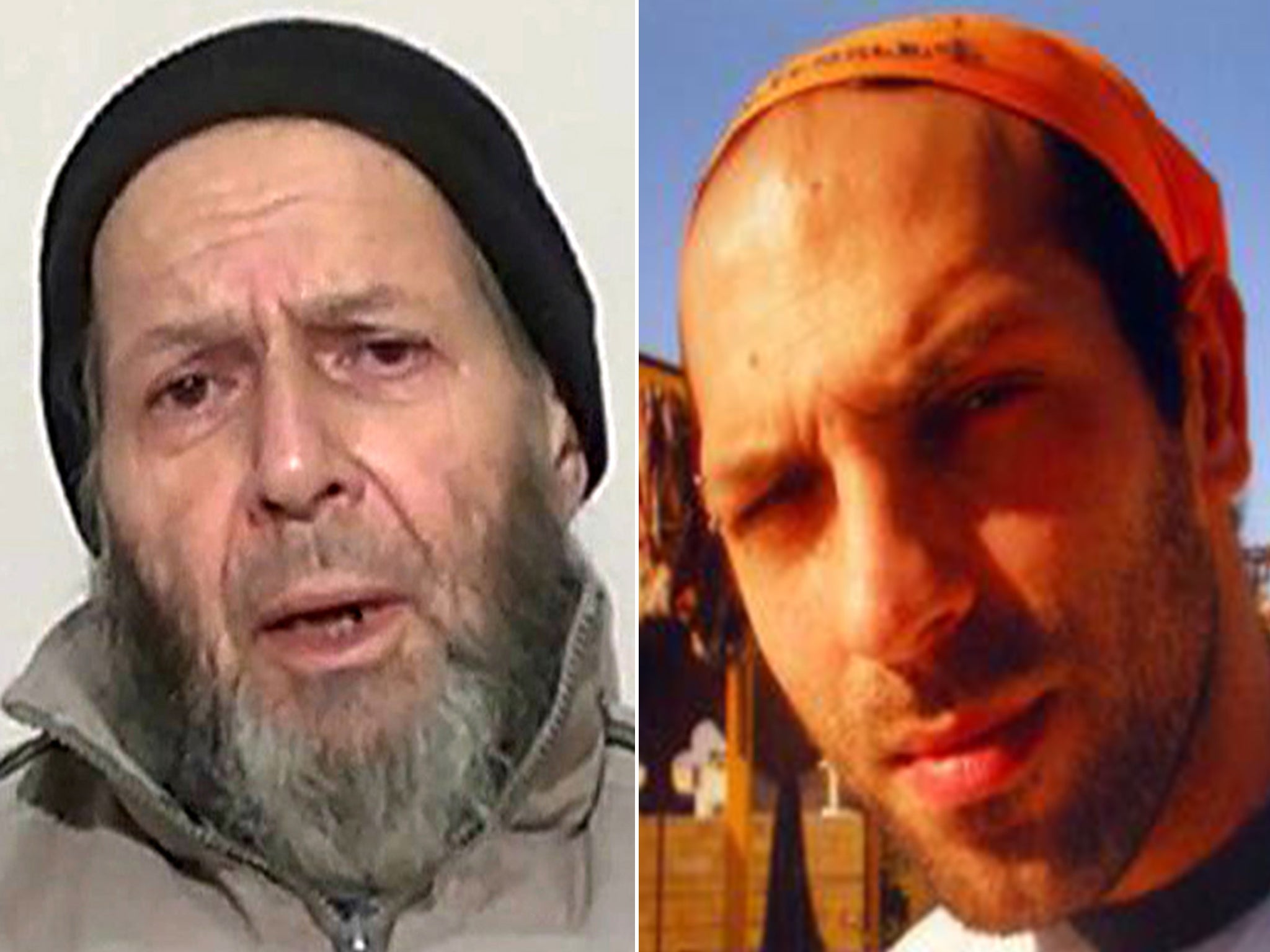Relatives of Yemenis killed in US drone strike file action in federal court asking judge to rule operation as unlawful
Families of Salem Ahmed bin Ali Jaber and Waleed bin Ali Jaber seek no compensation

Your support helps us to tell the story
From reproductive rights to climate change to Big Tech, The Independent is on the ground when the story is developing. Whether it's investigating the financials of Elon Musk's pro-Trump PAC or producing our latest documentary, 'The A Word', which shines a light on the American women fighting for reproductive rights, we know how important it is to parse out the facts from the messaging.
At such a critical moment in US history, we need reporters on the ground. Your donation allows us to keep sending journalists to speak to both sides of the story.
The Independent is trusted by Americans across the entire political spectrum. And unlike many other quality news outlets, we choose not to lock Americans out of our reporting and analysis with paywalls. We believe quality journalism should be available to everyone, paid for by those who can afford it.
Your support makes all the difference.The families of two Yemeni citizens killed in US drone strike, have filed a lawsuit in a court in Washington calling for a judge to rule that the operation was illegal.
In the first such legal action of its kind, the lawsuit filed by the families of a Muslim cleric who stood against al-Qaeda and a police officer, have asked the federal court to shed some light on the US’s covert drone programme and the hundreds of civilians it is estimated to have killed.
The action follows the announcement in April by President Barack Obama that two US citizens had been accidentally killed in a US strike in north-west Pakistan earlier in the year. It asks that that the families of individuals killed in Yemen – in this case of cleric Salem Ahmed bin Ali Jaber (above) and policeman Waleed bin Ali Jaber - receive a similar apology and acknowledgement from the US.
“The wrongful killings of Salem and Waleed have been well documented in the media and in professional studies of the US drone programme,” it says.
“The circumstances and aftermath of their deaths provide a case study of the failures of the drone war – intelligence limitations and inaccuracies, innocents killed, communities terrorised and a near-total vacuum of executive branch accountability.”
The lawsuit, which does not seek compensation, was filed in Federal District Court by Faisal bin Ali Jaber, an engineer and the brother-in-law of the cleric and the uncle of the police officer, with the assistance of the international human rights group Reprieve.
Reprieve lawyer Jennifer Gibson told The Independent that while the families of American Warren Weinstein and Italian Giovanni Lo Porto – whom the US said had been killed in a January strike – deserved an apology, so did people in Yemen. She said the lawsuit was an attempt to shine light on a programme cloaked in secrecy.

“This is an attempt to bring transparency to a programme that has been run in the shadows,” she said.
She estimated there were now hundreds if not thousands of innocent victims killed by US drone strikes in Yemen, Somalia, Pakistan and Afghanistan.
Reprieve has previously tried to brought legal action against the US authorities over the drone programme in courts in Pakistan, but this is the first time the action has been brought in a court in the US. It seeks to challenge the legality of the strike that killed the two Yemenis under the Torture Victim Protection Act and the Alien Tort Statute
The New York Times said Salem bin Ali Jaber, 40, a father of seven, had spoken out in a sermon against al-Qaeda and its justification for killing Yemeni officials.
Five days later, three young strangers drove into the village looking for Mr Salem. Family members put them off, fearing that they were Qaeda members angry about the sermon, but they returned twice and Salem finally agreed to meet them. Mr Waleed, the police officer, offered to go along for protection.
As the five men talked, four Hellfire missiles killed them all, as villagers watched. The newspaper said that while the US government has never acknowledged it publicly, it appears that drone operators had evidence that the three young men were al-Qaeda members and assumed the other two must be as well.
Yemeni officials gave the families of the dead men compensation totalling $155,000. They assumed the money originated with the United States, but no explanation or apology was forthcoming, according to the lawsuit.
Join our commenting forum
Join thought-provoking conversations, follow other Independent readers and see their replies
Comments